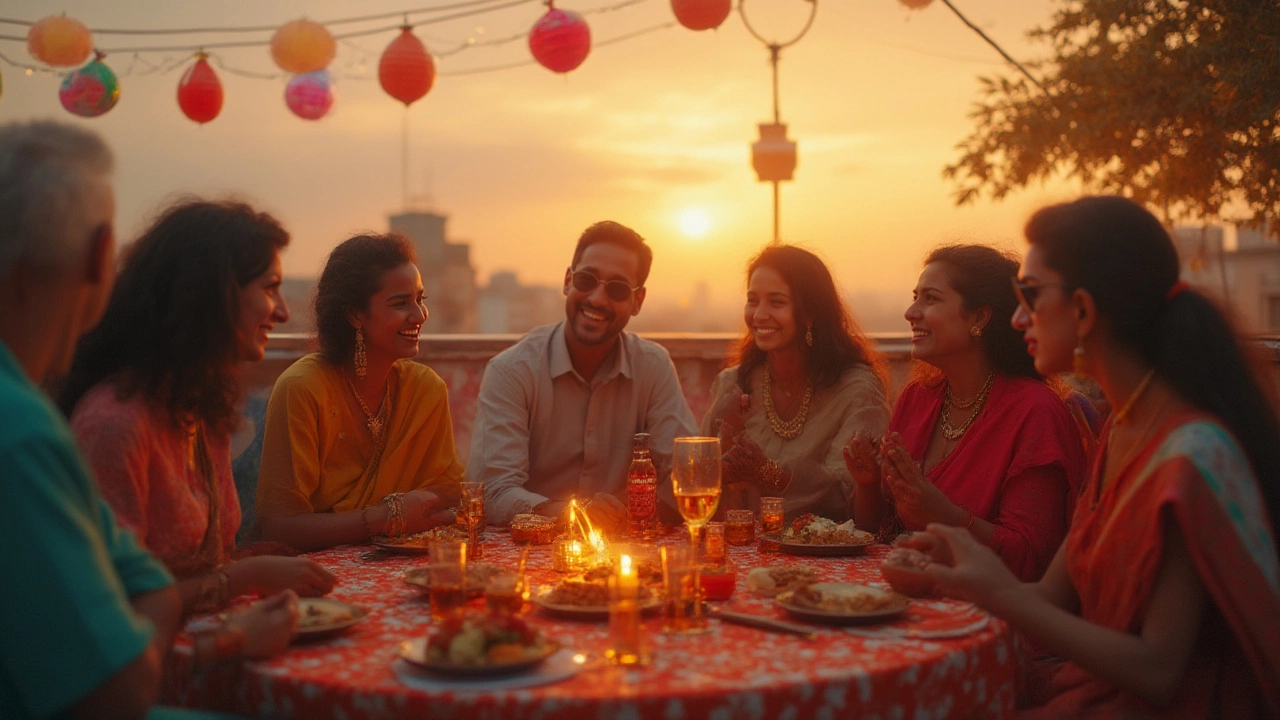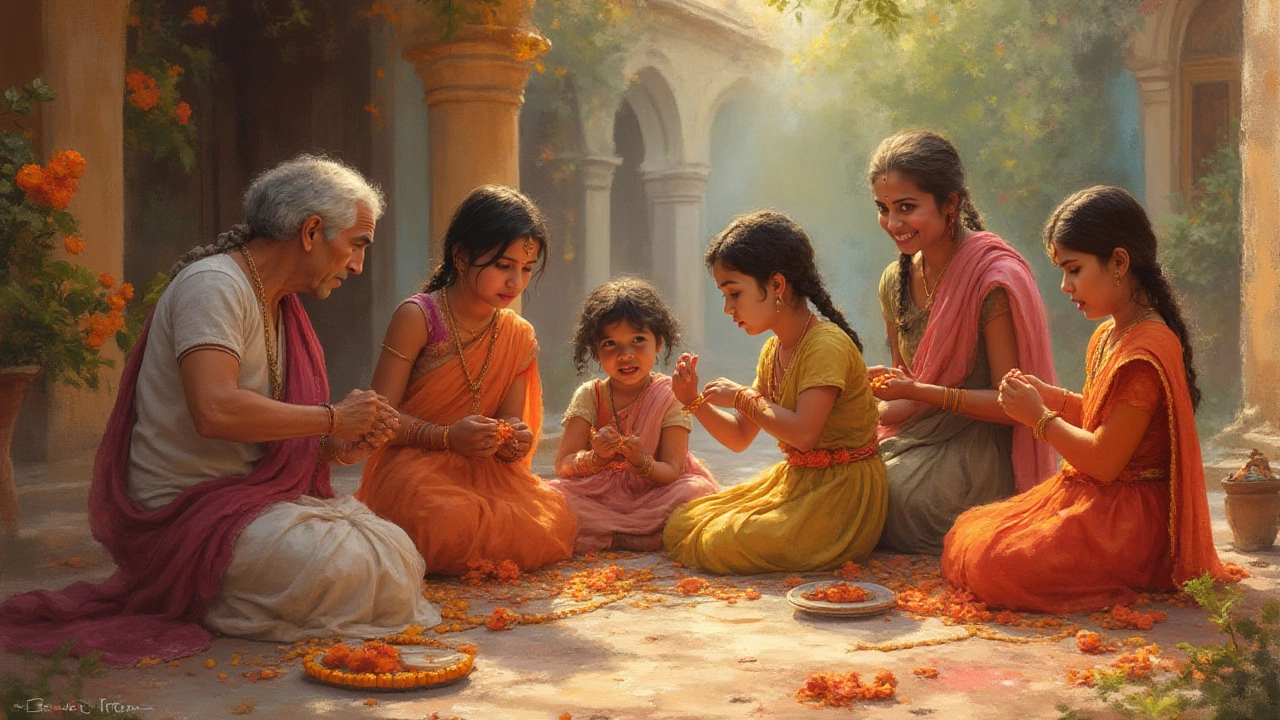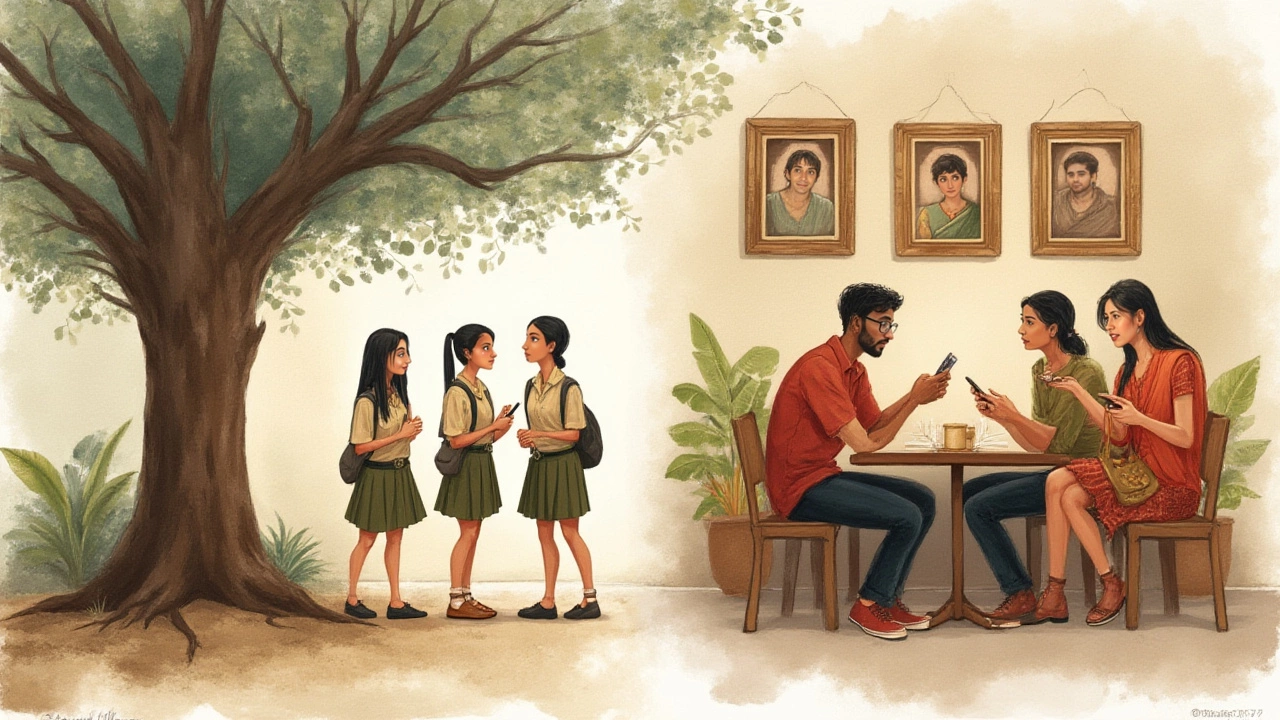Friendship in Indian Culture: Meaning, Traditions, and Modern Realities

If you’ve ever watched a Bollywood movie, you’ve probably seen the classic scene: a gang of friends sharing food, teasing one another, dropping everything to help. But don’t take that as fiction—those moments hit pretty close to home for most Indians. Friendship in Indian culture isn’t just a simple social bond; it weaves through daily life, traditions, and, honestly, shapes a lot of decisions people make. It’s like the WiFi connecting so many aspects together, quietly but firmly present.
The Meaning and Roots of Friendship in Indian Culture
To really get this, you have to look at how Indian society values relationships. There’s even a Hindi word—dosti—that feels weightier than ‘friendship’ does in English. In Indian cities and villages, a friend is rarely just a friend. He or she might be your confidant, emergency contact, debate partner, business associate, or even considered part of the family. This shows in the old Sanskrit saying: “Mitram priyam danam,” which basically means, “A beloved friend is a cherished gift.”
This isn’t just talk. Think about the Indian festival Raksha Bandhan—it’s mainly about the brother-sister bond, but today, it’s common for close friends to tie rakhis as a mark of loyalty and protection. And then there’s the actual Friendship Day (first Sunday of August), which is surprisingly huge, especially among Indian students and young adults. Go past the cards and colored bands, and you’ll see how this tradition crosses generations.
Another thing you’ll spot easily: Friends don’t hesitate to show care. Public displays like hugging, holding hands (even between men—completely normal), and sharing food are common. Unlike the “keep distance” mindset you find in some Western places, warmth here is a feature, not a bug. Parents might actually encourage their kids to make lasting friends at school, knowing those networks last for decades and often end up playing roles that family alone might not cover.
Want some numbers? A 2022 Pew Research report found that over 60% of Indians consider their childhood friends as “closer than cousins” and more than 70% rely on friends for emotional support. In many families, major life decisions—like job changes, travel, even marriage—are discussed with friends, sometimes before (or instead of) family. What does that really tell you? Friendship here isn’t just about laughs; it’s a support system ingrained in daily choices.
If you’re not convinced, look at classic Indian epics. The friendship between Krishna and Sudama is almost legendary—Krishna, a king, helps his childhood buddy Sudama (a poor Brahmin) without ever making him feel lesser. The Mahabharata’s Karna and Duryodhana story flips the script: Karna stands by his friend against society but at great personal loss. These stories aren’t just for bedtime; they’re quoted in real-life moments—weddings, funerals, and even business deals—as a reminder of friendship’s power.
And yes, tradition extends into the vocabulary: Hindi, Tamil, Bengali, Kannada—all have multiple words for friend. “Yaar” (buddy), “sakha” (companion), “mitra” (friend), “dost” (pal)—each has a slightly different feel, showing just how nuanced friendship can be.

How Family, Rituals, and Values Shape Indian Friendships
Most countries say ‘friends are like family,’ but in India, there’s often no line at all. You’ll find your friend’s mom fussing over your lunchbox; your friend’s siblings treating you like their own. There’s even the concept of ‘rakhi brothers’ or ‘chosen sisters’—people who are legally unrelated but swept up into family rituals. In fact, it’s common to refer to a best friend’s parents as “aunty” or “uncle” and actually mean it with respect, not just as a placeholder.
Family expectations also play a major role. Sometimes, even before two people become tight friends, their families check social backgrounds—religion, community, and tradition remain big factors. But don’t get it twisted: these bonds often cross identity lines and sometimes shake up social barriers that would otherwise stay put. You’ll hear college tales of a Hindu and Muslim sharing an apartment, celebrating each other’s holidays, even learning recipes and prayers from each other’s moms.
Indian weddings almost seem designed to include friends. From “sangeet” (the music night) where friends steal the spotlight dancing, to “baraat” processions—close friends are basically assigned tasks like guest management and last-minute décor. And if you miss your bestie’s wedding, there’s some serious explaining to do. Even career and business moves often come wrapped with recommendations and introductions through the ‘friend circle.’
There’s also this thing called ‘adda’ (a Bengali word now used more widely): it means a friendly hangout that mixes food, politics, and emotional therapy—sometimes in tea stalls, other times in sprawling living rooms. These informal sessions are where life’s problems are dissected, and inside jokes are born. For many, adda time is as important as any festival.
What about hierarchy? In some traditional families, it’s still there. Older friends sometimes are almost obeyed like uncles. In group chats, the eldest might get first word, but the bond is rarely heavy-handed. Respect gets woven in with equal measures of insults and affection—roasting and pulling each other’s legs are a kind of love language in themselves.
Time for some quick facts:
| Custom | Friendship Role | Details |
|---|---|---|
| Raksha Bandhan | Siblings & Friends | Exchange of bands/threads showing affection & protection |
| Friendship Day | All Ages | Cards, bands, gifts, outings, social media trends |
| Weddings | Friend Circles | Active involvement—planning, performances, ceremonies |
| Adda | Peer Bonding | Group hangout—discussion, sharing meals, advice |
| Hostel Life | Lifelong Connections | Common for young adults; often shapes life perspectives |
If someone forgets your birthday, forgets to check on you if you’re sick, or doesn’t invite you home for Diwali, it might even feel like a breakup. Because spending festivals together, sharing home-cooked food, sitting through family fights—that’s all part of being a real friend here. There’s no “just friends” option; it’s usually “practically family.”

Modern Indian Friendship: Trends, Tips and Realities
So, what’s it like now? Has Instagram changed everything? Actually, a lot and not so much. The energy is still there, but the ways people connect have expanded like crazy. The traditional “gang” still meets, but video calls and WhatsApp groups keep the spirit alive across cities or even continents. You’ll find Indians arranging surprise virtual parties, sending little gifts through delivery apps, and even having entire group chats just to debate cricket scores or argue about the best dosa place in town.
And here’s a twist: cross-gender friendships, once slightly taboo, are getting normalized. Today, it’s common for a young woman to have her childhood male friend as chief wedding planner or vice versa. You’ll spot the odd raised eyebrow, especially in smaller towns, but the urban crowd shrugs it off. Indian parents, traditionally protective, now accept that real-life support sometimes comes from friends who aren’t the same gender.
There’s also something to learn from the way Indians support each other in tough times. Think back to the COVID-19 pandemic: mutual aid groups sprang up—often spearheaded by circles of friends. People pooled resources, found hospital beds, cooked meals, delivered medicines. These weren’t government or charity-driven; just friendship at work.
Now, here are some tips for anyone wanting to build or sustain friendships in Indian culture:
- Show up: Being physically or virtually present—birthdays, exams, breakups, festivals—is everything. A missed phone call can mean a lot.
- Share meals: Eating together, whether street food or home-cooked, makes bonds stronger. So don’t just stick to coffee; join in for lunch or dinner.
- Learn to laugh—loudly: Inside jokes, nicknames, even little friendly digs (“kabhi kabhi lagta hai apun hi bhagwan hai”—sometimes, we feel like God) are normalized. Take it with the right spirit.
- Respect family: Take the effort to know your friend’s family, and accept the same in return. Remember, friendship networks often solve things faster than bureaucracy does.
- Traditions matter: Even if you’re not into rituals, don’t mock them. Accepting participation (or saying a gentle ‘no’) beats ignoring invites.
Looking at statistics, over 75% of Indian millennials report at least three close friends they’ve known for a decade or more. Social researchers in Mumbai found Indian young adults are now more likely to share private worries with friends than even partners or parents—a shift from just a decade ago. And while online connections matter, in-person bonds still rule. Study groups, sports teams, hostel rooms, volunteer camps—friendships forged in these spaces tend to outlast jobs and even relocations.
Here’s a thing outsiders notice: Indian friends don’t just keep in touch with you; they often know about your siblings, help out with your career, offer relationship advice, and nag you about eating properly. It’s not claustrophobic—it’s just investment. You’re expected to return the favor too, so regular check-ins, even tiny gifts during festivals, or just helping move house, go a long way. There’s something heartwarming about knowing you’re never completely alone with your struggles as long as your friends have your back.
Of course, technology has brought a few worries—jealousy over old school groups, “seen” but not replied messages, and “FOMO” about hangouts seen on Instagram. But underlying all that, the emotional closeness and real-world loyalty still hold firm.
The rules keep evolving, but the backbone is pretty much the same: trust, brutal honesty, shared food, and a sense that your friends are as essential as your morning chai. The world might look different through an Indian lens, but that fierce attachment to friends remains steady whether you’re hanging out at a Mumbai tea stall, a Delhi metro stop, or halfway around the world in a packed Toronto basement. If you get pulled into an Indian friendship circle, embrace the chaos—it’s worth it, and odds are, that welcome will last a lifetime.